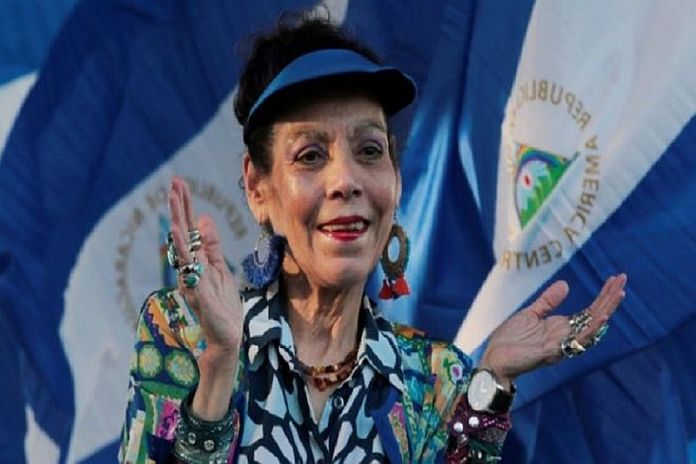BRUSSELS, Belgium — The European Council (EU) Council has imposed restrictive measures on eight more individuals responsible for serious human rights violations in Nicaragua and/or whose actions undermined democracy or the rule of law, including vice-president Rosario Murillo. These measures are targeted at individuals and are designed in this way not to harm the Nicaraguan population or the Nicaraguan economy.
Restrictive measures now apply to a total of 14 persons. Those designated are subject to an asset freeze and EU citizens and companies are forbidden from making funds available to them. They are also subject to a travel ban, which impedes them from entering or transiting through EU territories.
The political situation in Nicaragua has further deteriorated in recent months. The political use of the judicial system, the exclusion of candidates from the elections and the arbitrary delisting of opposition parties are contrary to basic democratic principles and constitute a serious violation of the rights of the Nicaraguan people. These actions further undermine the credibility of an electoral process, already hampered by an electoral reform that fell short of the recommendations of the OAS and EU Electoral Observation Missions.
The EU has consistently called on the Nicaraguan government to abide by its own commitments, by Nicaragua’s Constitution and by international human rights laws and standards. The EU has also repeatedly called for a meaningful dialogue with the opposition on electoral reforms as an essential step to restore trust in public institutions and has asked for the return of international human rights bodies to Nicaragua. Today’s additional sanctions demonstrate that the EU continues standing ready to use all its instruments to support a democratic, peaceful, and negotiated solution to the political crisis in Nicaragua.
The detention of a seventh potential presidential candidate last weekend sadly illustrates the magnitude of the repression in Nicaragua and projects a grim picture for the upcoming elections. As stated before, the EU firmly condemns the systematic repression by the Nicaraguan authorities, and urges them to repeal restrictive laws, including the law on the regulation of foreign agents, and calls for the immediate and unconditional release of political prisoners, as well as the full respect of the human, civil and political rights of all Nicaraguan citizens.
The sanctions regime was first introduced in October 2019, after the Council had repeatedly expressed its concern about the deteriorating political and social situation in Nicaragua, and firmly condemned the repression of political opponents, demonstrators, independent media and civil society going on since April 2018.
On May 4, 2020, in view of the continuing grave situation in the country, the Council adopted the first restrictive measures against six individuals.





